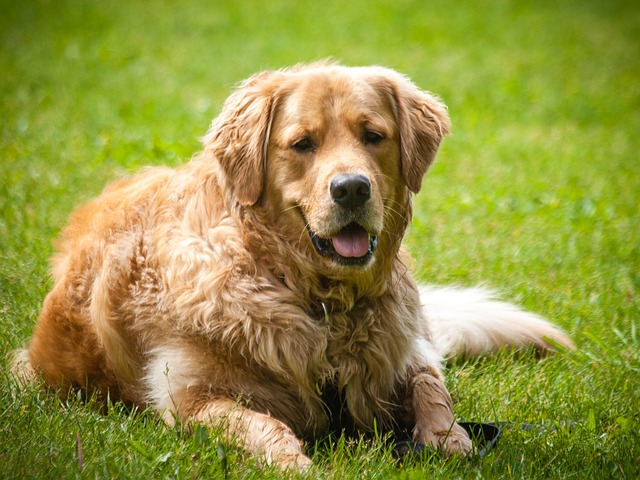
How can I tell if my dog's heatstroke is serious
Let’s be real: It’s a sticky August morning in Los Angeles, and you took your 2-year-old Golden Retriever, Max, for a walk a little later than usual
There’s nothing like burying your face in your dog’s fur—until a sudden whiff of something off makes you pull back. That “doggy smell” might seem inevitable, but it’s rarely just “how dogs are.” Unpleasant odors usually signal a need for attention, whether it’s dental trouble, skin irritation, or something deeper. Let’s explore the most common causes with compassion—because a fresh-smelling pup is a happy, healthy pup.
Start with their mouth, a primary odor source. If their breath smells like rotten meat, gums are red, or teeth are coated in yellow tartar, poor oral health is likely at play. Plaque builds quickly, especially in small breeds or dogs fed soft foods, hardening into tartar that inflames gums and releases sulfur compounds. Regular dental care isn’t just about kisses; it’s linked to heart and organ health. In many European countries, annual vet exams are legally required for animal welfare. Use vet-approved toothpaste and dental chews with the VOHC seal to fight plaque gently.
Next, run your hands through their coat. Sticky patches, scabs, or a sour, moldy smell often point to skin infections or allergies. Dogs with skin folds, floppy ears, or thick fur trap moisture, creating ideal conditions for bacteria or yeast to thrive. Allergies to food, pollen, or even your laundry detergent can cause itchy, inflamed skin that oozes and smells. In the US, vets often recommend hypoallergenic diets or medicated shampoos to soothe irritation without harsh ingredients.
Don’t overlook their ears, especially if they’re floppy or furry. A musty, foul odor could mean mites, yeast infections, or excess wax. Check for redness, dark discharge, or excessive head-shaking—signs to see a vet. In damp places like the UK, weekly cleanings with pH-balanced ear solutions help prevent buildup, but never try to treat infections at home. Professional care is safer and often legally required to avoid worsening issues or causing pain.
 A sharp, fishy smell near their bottom? That’s likely anal gland trouble. These small scent glands near the anus can become blocked, leaking a thick, stinky fluid or even abscessing. You might notice them scooting on the floor or licking their behind obsessively. While some owners attempt to express glands at home, it’s risky—vets or groomers are trained to do this without harm, and in the EU, non-professionals are legally prohibited from such procedures to protect animal welfare.
A sharp, fishy smell near their bottom? That’s likely anal gland trouble. These small scent glands near the anus can become blocked, leaking a thick, stinky fluid or even abscessing. You might notice them scooting on the floor or licking their behind obsessively. While some owners attempt to express glands at home, it’s risky—vets or groomers are trained to do this without harm, and in the EU, non-professionals are legally prohibited from such procedures to protect animal welfare.
What’s in their bowl matters, too. Low-quality kibble with fillers, table scraps, or ingredients they’re sensitive to (like grains or chicken) can lead to smelly gas, oily coats, or skin allergies. My golden retriever, Daisy, used to have a persistent “greasy” odor until we switched to a limited-ingredient diet with novel proteins like venison. Always check for AAFCO certification in the US or equivalent regional standards (like Australia’s strict pet food regulations) and consult your vet before major diet changes to ensure nutritional balance.
In rare cases, a strong, persistent odor—like ammonia or urine—paired with lethargy or changes in drinking/eating habits could signal kidney or liver problems. These need immediate veterinary care, as delaying treatment violates animal welfare laws in many countries that require prompt medical attention for sick pets.
To freshen up your pup the right way, start with basics: bathe them with dog-specific shampoo, brush daily to remove dirt and dead hair, and focus on addressing the root cause, not just masking smells with perfumes or harsh sprays. Regular vet visits, balanced nutrition, and gentle hygiene routines go a long way.
It’s easy to feel guilty or frustrated when your dog smells strong, but approach it as a chance to care for their needs. Every odor tells a story—whether it’s a dental ache, itchy skin, or an ear infection—and your attention shows how much you care. With patience and proactive care, you’ll not only eliminate the smell but also strengthen the bond that makes every snuggle worth it. After all, a fresh-smelling dog is a sign of a well-loved dog—and you’re nailing this pet parent thing.

Let’s be real: It’s a sticky August morning in Los Angeles, and you took your 2-year-old Golden Retriever, Max, for a walk a little later than usual

You're enjoying a summer afternoon at the park when you notice your dog has stopped panting and appears disoriented - their gums are bright red

Let’s paint the picture: You’re in your Denver apartment, watching your 4-year-old Boston Terrier, Ruby, plop down mid-play session with her favorite toy

Many dog owners notice their pets nails seem shorter after regular walks,but how much does this daily activity actually help?The answer depends on where you walk—concrete sidewalks or asphalt streets gently file nails as a dog's paws hit the ground

Most dog owners notice their pup scooting across the carpet at some point, but few connect it to impacted anal glands. These small sacs near a dog’s rectum secrete a scent for marking territory

Most vets agree that regular dog teeth cleaning is key to avoiding painful dental issues later. For healthy adult dogs, a professional cleaning at the vet’s office every 12 to 18 months usually works well.